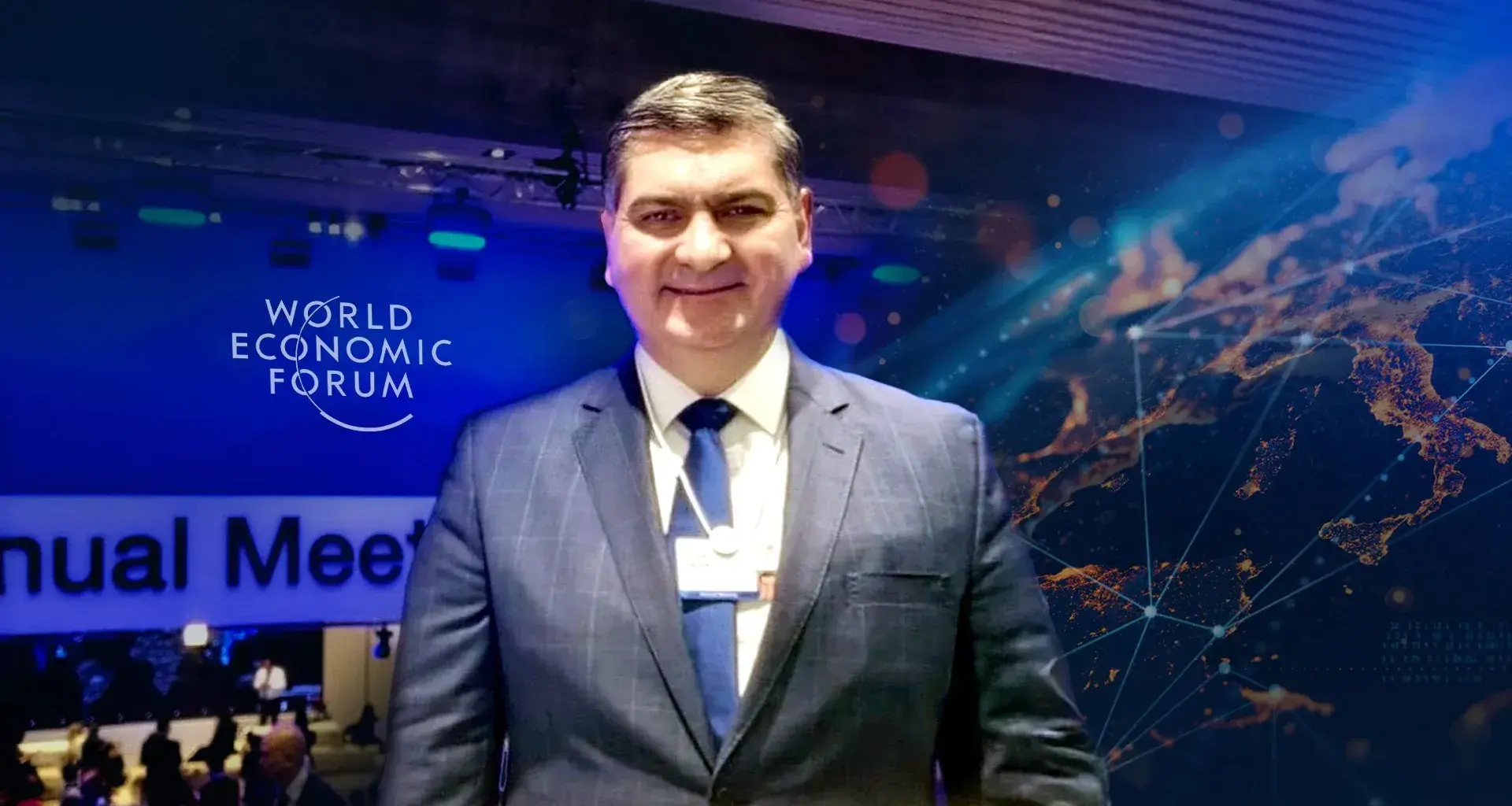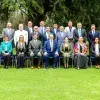David Garza, Executive President of Tec de Monterrey, highlighted how important universities are to the world’s future during the annual meeting of the World Economic Forum (WEF) in Davos, Switzerland.
Garza participated in spaces for dialogue on the institution’s behalf, as well as meetings with three WEF councils and bilateral meetings with other leaders.
The Tec’s executive president shared his experiences at the WEF through a live chat on Live Tec with Dr. Edna Jaime, Dean of the School of Social Sciences & Government.
“It’s an honor to be here and share what we’re doing and where we’re going with different World Economic Forum stakeholders, but above all to learn where the world is heading,” he said.
Garza was one of 17 university presidents from around the world invited to contribute their perspective at this global event. On several occasions, the Tec president spoke about the importance of talent, digital inclusion, the future of work, and the use of technologies such as artificial intelligence (AI) in education, among other things.
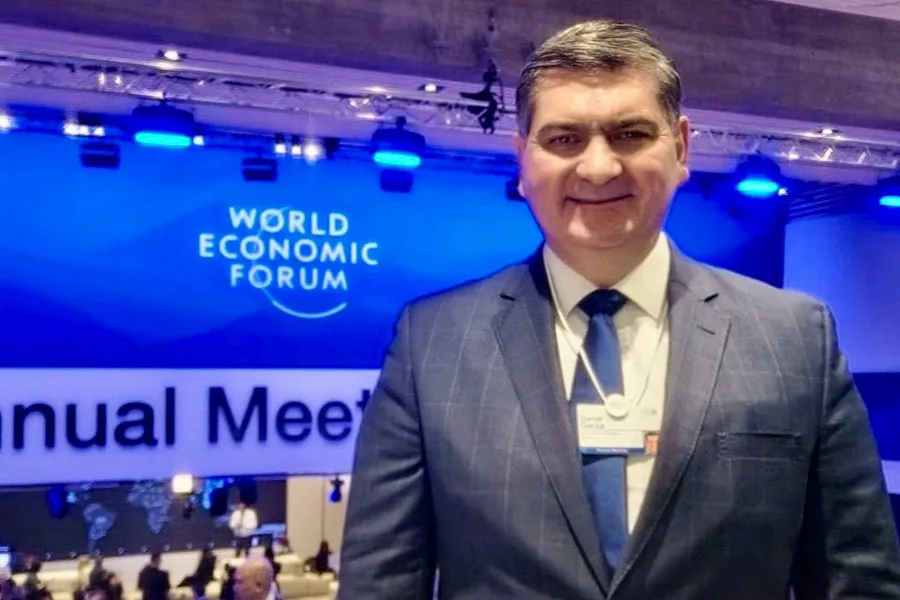
Universities as agents of change
According to Garza, the world is undergoing unprecedented changes, characterized by rapid technological advancements including AI, climate change, geopolitical challenges, and social transformations.
He highlighted how universities play a pivotal role due to their capacity for innovation, long-term thinking, and interdisciplinary and international collaboration.
“Tec de Monterrey was invited to join these discussions on current affairs, not just fragmentation and polarization across the world, but also this transition to the intelligent age.
“As part of our involvement in this rectors’ forum, a new council was also created, the Council for Human Capital Development, which the WEF invited us to be part of,” he added.
Garza said that in this context of a fragmented and polarized world, the phenomenon of relocation provides a key opportunity for emerging economies, especially in the Global South.
The Global South is a term that refers to developing countries or emerging economies, primarily located in Latin America, Africa, Asia, and Oceania, that face similar socioeconomic challenges.
According to Garza, the aim of this new council is to monitor trends in order to create proposals to address the major challenges in talent development at a global level.
The Tec president took part in a panel focused on future opportunities for Latin America, reflecting on the region’s distinctive elements around trends such as relocation.
“I’m left feeling we’re immersed in a change of era, which is happening very quickly, and that’s why we haven’t yet grasped all its ramifications.
“These are complex issues which in turn require solutions that are not simple (...) this leads us to rethink the role that each of the different institutions or organizations should play in order to move more quickly,” he added.
During a conversation with the dean of the School of Social Sciences & Government, Garza also highlighted a meeting with MIT President Sally Kornbluth to discuss AI and health.
He explained that it was remarked during one of these meetings that this is the last generation of CEOs who are going to manage all-human workforces.
“From this point forward, we’ll be managing human and digital workers, and this doesn’t just apply to CEOs, but to all those managing work teams.”
He also highlighted that there was talk of returning humans to the Moon, and of a lunar economy.
“It’s an honor (...) to share what we’re doing and where we’re going at the World Economic Forum, but above all to learn.” - David Garza
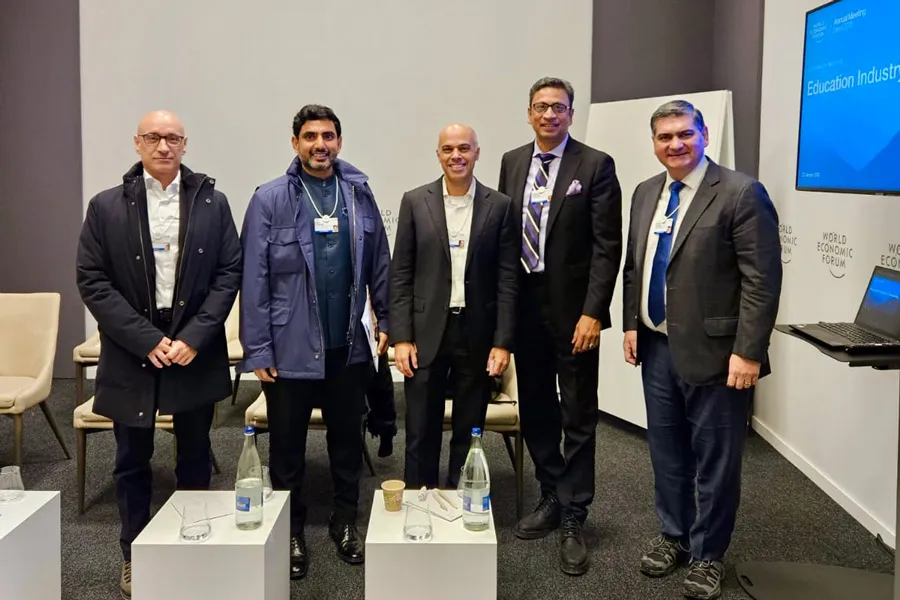
The key lies in quality joint research
According to Garza, joint international research projects can be key to attracting funding from global organizations and elevating the relevance and impact of the findings of these lines of research.
“Research is a fundamental mission for universities,” the executive president shared in an article published by the WEF prior to the start of the meeting.
“If universities and industries in developed economies collaborate with research initiatives in the Global South to tackle global challenges relevant to the local context, the potential for regional impact is tremendous,” he said.
“By combining research excellence and capacity building with regional know-how, such collaborations can accelerate the discovery and deployment of innovative solutions,” Garza said in his article.
As an example of this, the president shared the recent collaboration between the Ragon Institute -with researchers from Harvard, the Massachusetts Institute of Technology (MIT), and Boston’s Mass General Brigham- and Tec de Monterrey.
According to Garza, this collaboration was the result of a mutual mission to integrate the expertise of these U.S. research institutions with the Tec’s innovative capacities in order to apply these discoveries to Latin America.
He also gave as further examples innovation ecosystems such as Ruta N in Medellín, Colombia, or distritotec, a project created and led by the Tec community in Monterrey, Mexico.
“distritotec has already achieved urban regeneration, sustainability, and economic growth by creating public spaces, adopting renewable energy, and generating jobs.
“Its second phase as an innovation district is just beginning with the launch of EXPEDITION FEMSA, a project promoting interdisciplinary applied research and industry partnerships.”
Tec’s participation at WEF 2025
The World Economic Forum’s annual meeting is a leading global gathering that convenes leaders from politics, business, academia, and civil society to discuss significant global challenges.
This meeting aims to foster collaboration and dialogue and offers keynote addresses, roundtable discussions, and networking opportunities to promote sustainable development and inclusive development.
The WEF also often sets the tone for some of the most important political and business decisions of the year, making it a hub for high-profile ideas and alliances.
“This year, without a doubt, given the whole geopolitical context of polarization that we’re experiencing, there is an issue of concern, but it seems to me that human beings have always had this creative capacity and have been able to adapt.
“I think that leads to constructive optimism (...) This is where educational institutions play a large role. We’re an institution that belongs to the hope sector. There are undeniably significant challenges, but also enormous opportunities,” he concluded.
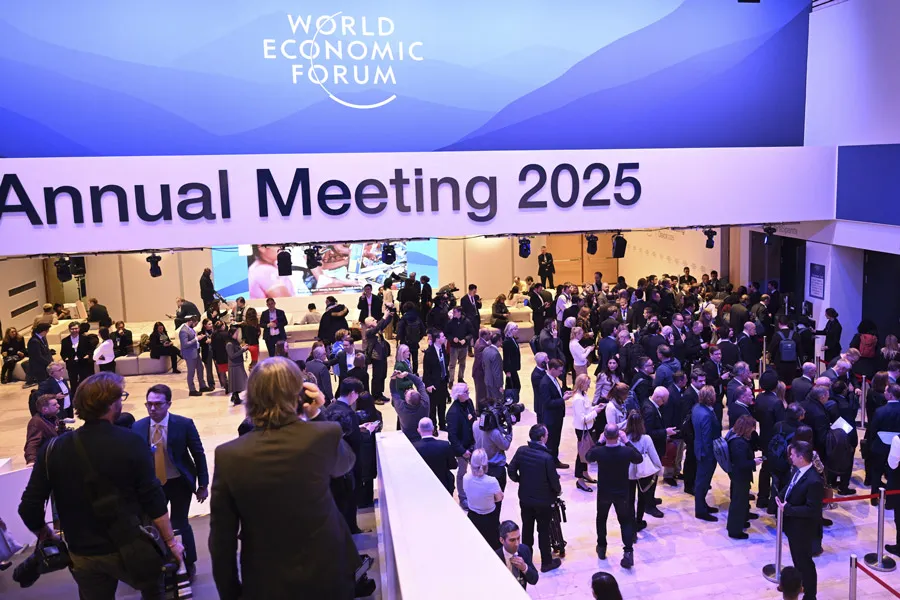
David Garza participated in panels, roundtable discussions, talks, and keynote speeches, as well as:
- Meetings with the 3 WEF groups to which he belongs:
- University Leaders Community
- Edison Alliance for Digital Inclusion
- Council for Human Capital Development, which he was invited to join this year, this being the first time he attends as part of the Council.
- Bilateral meetings with CEOs:
- Marcus Wallenberg of Skandinaviska Enskilda Banken
- Jens Holtinger, EVP Group Trucks Operations (Volvo)
- Other participations:
- Latin America Panel
- Governors Meeting: Education
- Universities as catalysts: Advancing 4P Partnerships for Scalable Climate Finance and Solution
- New Algorithm for Latin America
- MIT - Intersections of AI and health
The Mexican delegation at WEF 2025 consisted of 10 participants, 4 of whom are Tec graduates.
YOU CAN WATCH THE VIDEO INTERVIEW WITH DAVID GARZA HERE (IN SPANISH):
ALSO READ:

